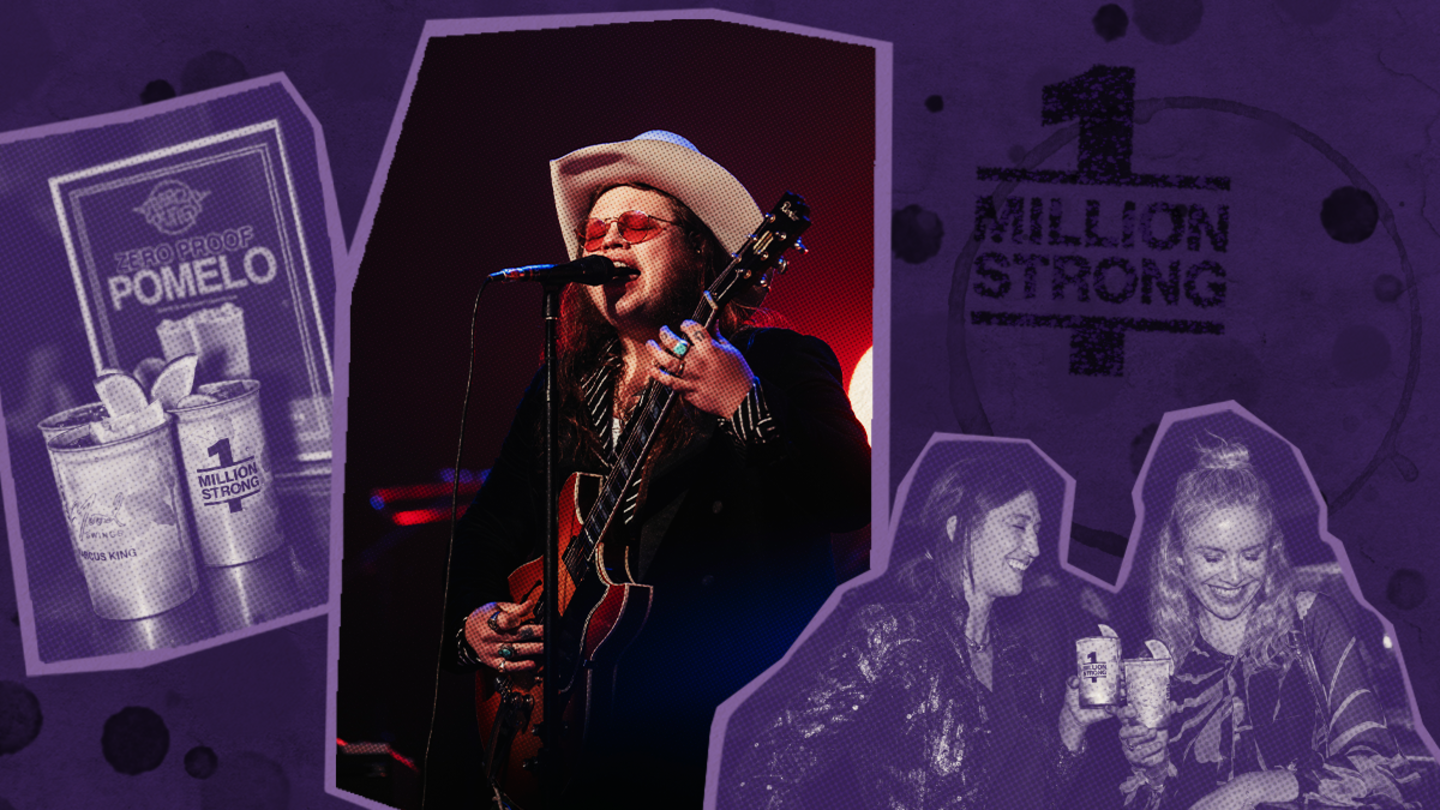Grammy-nominated singer-songwriter Marcus King grew up playing in the bars of Greenville, South Carolina, surrounded by alcohol.
As a teenager, he often got paid in cases of beer. By then, he not only drank but also smoked marijuana to try to relieve his anxiety and feelings of deep insecurity.
“I just didn't really have any care for myself,” King recently told a Los Angeles crowd. “It was like the laziest way to try to kill yourself is just to drink and do drugs … I’m glad it didn’t work.”
It’s the kind of personal story the highly acclaimed guitarist readily shares to destigmatize the addiction and mental health problems he’s wrestled with for much of his life. Those struggles inspired his latest album, “Mood Swings”, which reveals some of his deepest vulnerabilities with songs like “Bipolar Love” and “Save Me.”
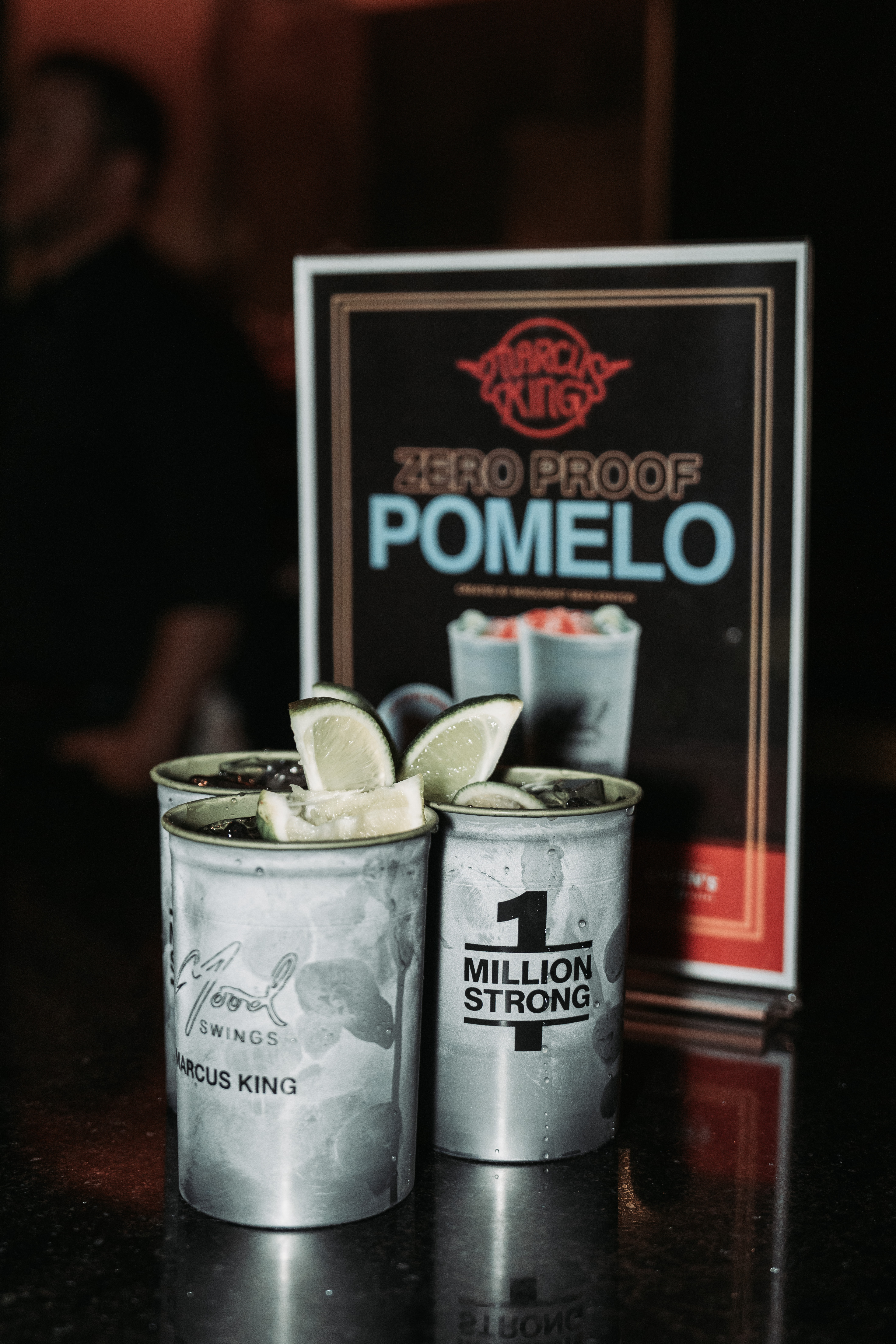
Now King is taking his efforts to avoid substance abuse — and self-compassion when he struggles to maintain it — on the road as he works to create a more supportive tour for himself, his crew and his fans. He also talks openly about his journey to addiction recovery and mental health in memory of a close friend who died by suicide.
King is showing how those closest to problems can best tackle them through community-oriented solutions, rather than top-down fixes. Instead of shaming or isolating people, which is too often the approach, King is leading the way to encourage those in addiction recovery to tap into their personal resilience and leverage the power of community and belonging.
He is the first artist to take 1 Million Strong on tour. 1 Million Strong is an initiative created by The Phoenix, Stand Together Music, and Stand Together Foundation to transform the way people think about and approach addiction and recovery.
The partnership is bringing mental health, wellness, and sober-supportive activities to King’s tour, including specialty mocktails and sober-supportive lounges, to foster community and an accepting atmosphere.
“We’re just trying to destigmatize the idea of going to a concert and having to be sober,” King said in a recent Instagram post. “It’s all about just making a safe space where our sober friends can come, and they don’t feel alienated by all the drinking … and they can have a good time.”
Performing bolsters his own sobriety, King said.
“That's kind of the cheese at the end of the maze every day for me,” he told the Los Angeles crowd at a recent event for Sober Nation, a partnership between Live Nation and 1 Million Strong. “It’s like a two-hour window where I [can] just do me, and nobody's going to mess with you.”
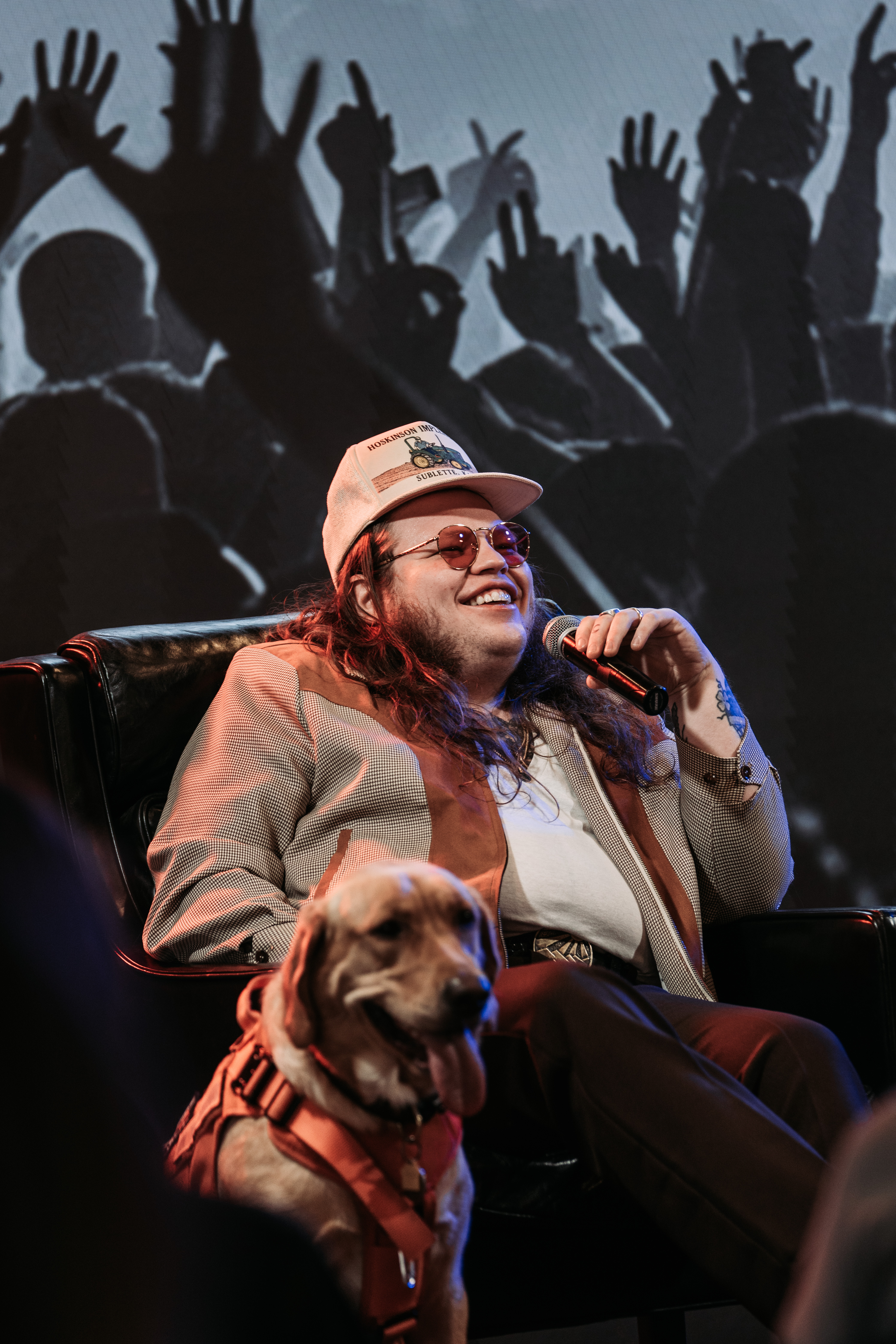
In fact, maintaining his sobriety and mental health has remained a top priority since King launched his tour in May. He and his wife, Briley, bring their Peloton, weights, and a cold plunge to keep up their wellness routines. King also starts the day with meditation, prayer, and a gratitude practice. In bars, he keeps his hands full with a Diet Coke on the rocks, complete with two cherries and a lime.
Key to his well-being is Duck, the trained emotional support retriever who stays by his side and nuzzles up for frequent head scratches.
Duck keeps him grounded – and doesn’t tolerate drinking.
“He hates the smell of alcohol on people's breath,” King said. “There's nothing worse than your dog, like, not feeling it and just, like, avoiding you.”
King also supports mental health initiatives to honor his close friend, Matt Reynolds, a singer-songwriter and tour manager nicknamed “Curfew,” who died by suicide in 2017.
King recently launched the Curfew Fellowship Foundation to raise money to shore up fine arts programs in schools, offer a crisis hotline, and highlight the need for community support for people facing mental health, sobriety and addiction struggles – challenges King found himself immersed in from an early age.
Sign up for the Strong & Safe Communities newsletter for stories, ideas, and advice from changemakers working with their neighbors to address the biggest problems we face.
King’s gift for music led him to alcohol at an early age
King picked up his first guitar when he was 3 or 4 – “as soon as I could hold one,” he told the Bob Lefsetz podcast. He wanted to share in the joy that his father, professional blues guitarist Marvin King; his grandfather; great grandfather and uncles showed while playing together on the front porch.
“Even at a young age, you don’t really understand a lot of the pain, but you understand how to not feel it,” King told Lefsetz. “So music was something I really wanted to grasp ahold of, and then it grasped ahold of me.”
As his alcohol and drug use took off during his teen years, he simply expected to die young.

Then, while performing in North Carolina in mid-2021, he met Briley. He had just quit using substances and was “horribly hungover” following a show in Charlotte when he saw that Briley had tagged him in an Instagram post commenting on the performance.
“I slid into her DMs at 5 in the morning with some fire emojis,” he said with a laugh at the Sober Nation event. “Really suave.”
He invited her to that evening’s show in Raleigh. She showed up.
“Just seeing her gave me the desire to want to live again, which I didn’t think was possible,” King told Sober Nation. “She was kind of looking at me like ‘I like you, but you’ve gotta tighten that up.’”
While Briley inspired him, he added, “You’ve got to do it for yourself."
He has approached his own journey “with a sober spirit and an open mind,” rather than needing to follow other people’s strict paths to recovery – an approach that hadn’t worked for him.
“When it gets real rigid,” King said, “I think that’s the thing that turns people off.”
Despite getting ‘lost in the party’, he grants himself ‘grace’
Today, no longer endlessly numbed by alcohol, he said he finally feels present in his life. Another perk of sobriety: He can remember it.
“There's so many times in my life that I can't remember, and I know I was there, and they were actually really momentous occasions,” King told Sober Nation. “Like the first time I played with Eric Clapton or when I played with Little Feat or Lynyrd Skynyrd or hell, there's a lot. But I was completely out of my mind … I sounded good, but I wish I could remember it.”
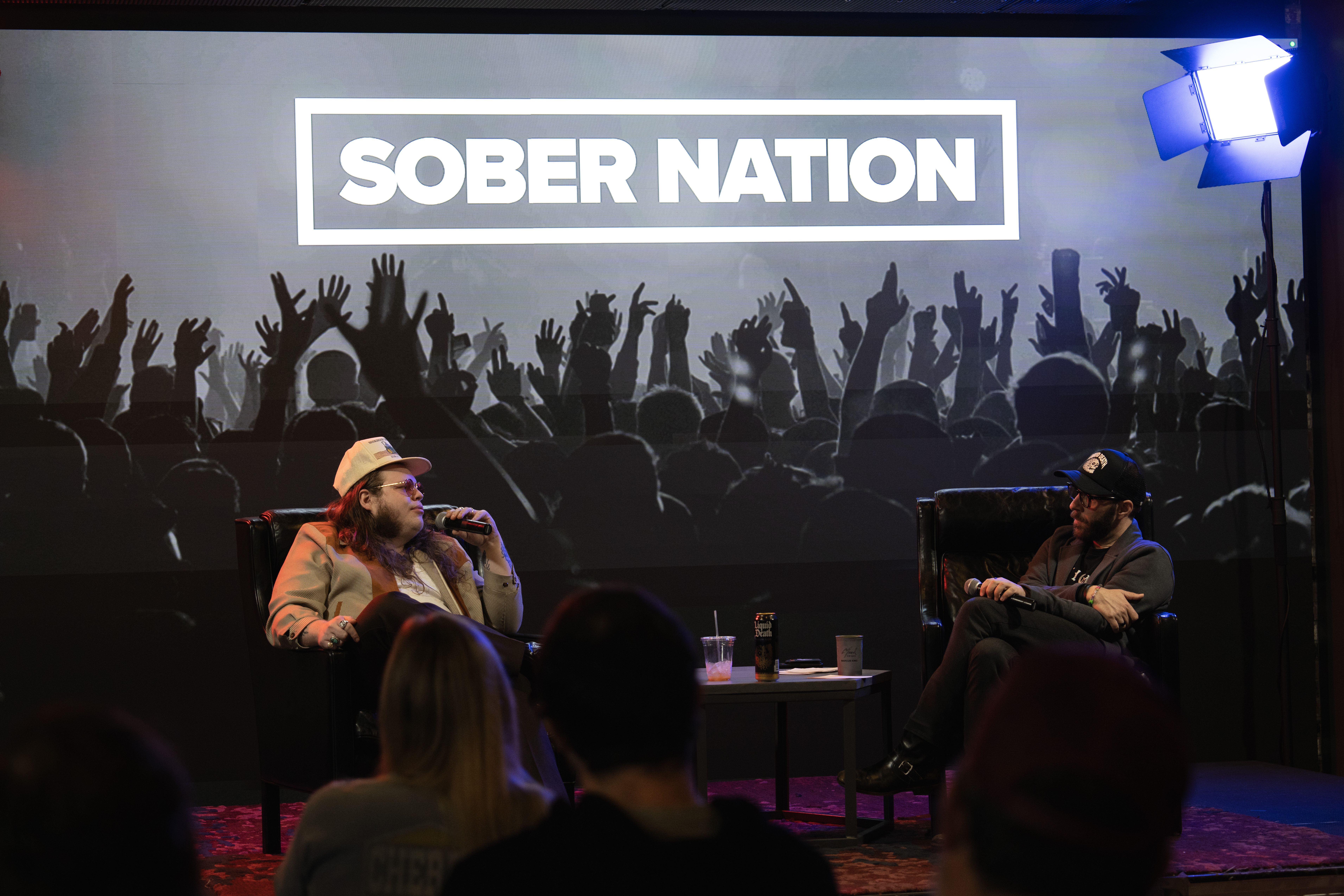
He said he still struggles to stay sober and thinks of his depression as being in remission, as something that can easily return. He is also open and intentional about his use of cannabis to treat anxiety and depression. “We’re all just a work in progress out here, folks,” King posted on Facebook in June, after the release of a podcast during which he talked about being hungover. He noted on Instagram that he was grateful for Briley’s support and to 1 Million Strong and the Phoenix for helping “folks like me who get lost in the party and can’t find their way out.”
His posts drew more than 1,000 comments from fans thanking him for his honesty and vulnerability and encouraging him to keep up the fight.
“You’re a hero to many,” one wrote on Facebook. “I heard myself in this,” wrote another.
Through his tour and candor, King proves how powerful community is to helping people overcome barriers and reach their full potential. Treating people with dignity, and not shunning them or forcing them into cookie-cutter approaches, creates far greater opportunity to solve problems and propel people forward.
On tour, King told the Sober Nation crowd, he finds strength in sticking to his workout routine, making time to ground himself, and taking care of Duck, who forces him out of bed and into the sunshine every morning.
“Something I think about a lot is giving yourself some grace,” King told the Sober Nation crowd. “It's all about the journey and about getting back on the wagon … Just give yourself some grace and allow yourself to come back and fight that battle again.”
Stand Together Music unites musicians and their teams with proven changemakers to co-create solutions, starting with addiction recovery, education, free speech, criminal justice, and ending the war on drugs.
Learn more about Stand Together's efforts to build strong and safe communities and explore ways you can partner with us.
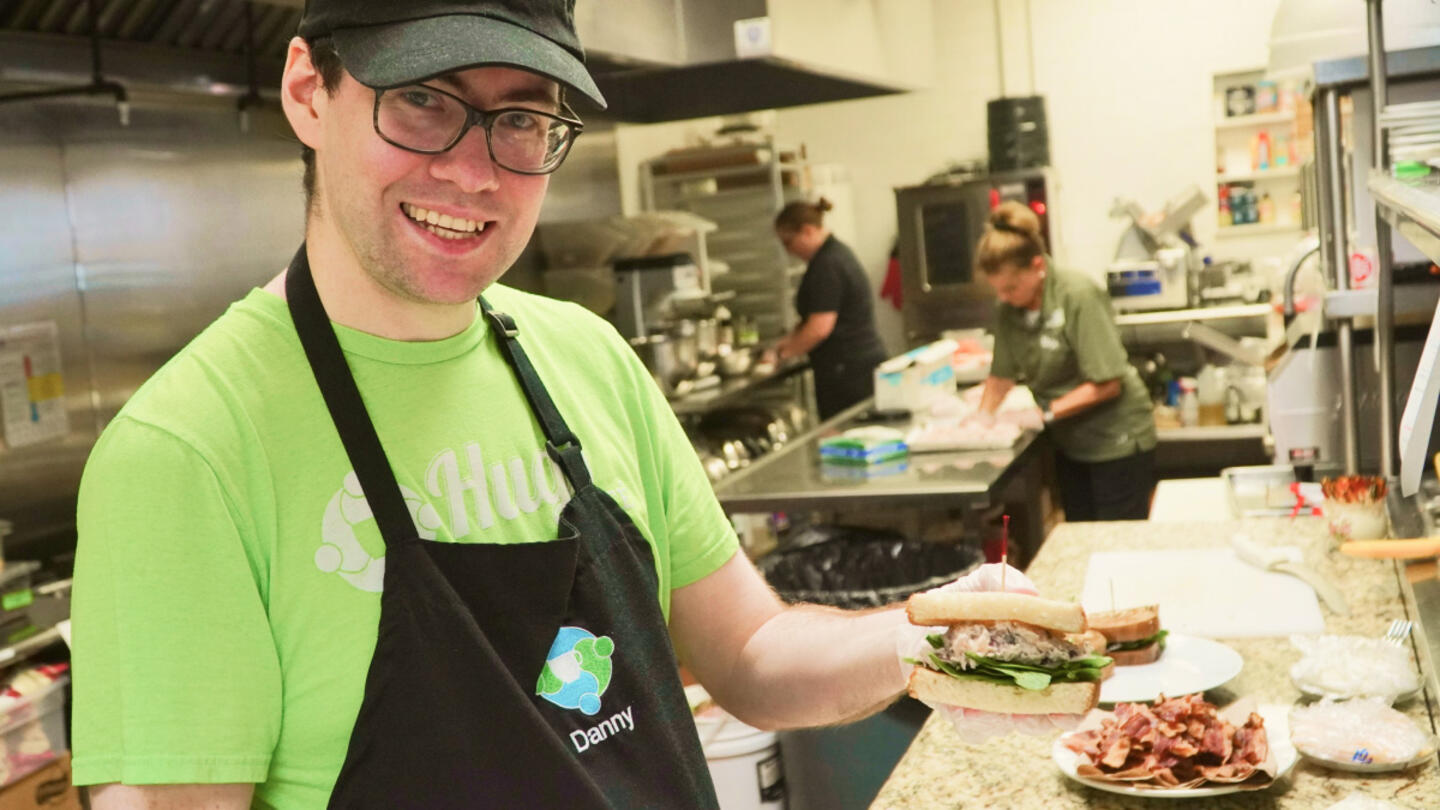
People with disabilities want meaningful work — and Hugs Cafe is making it happen.

At this ‘resort,’ children with intellectual disabilities are seen as gifts to be celebrated and loved.

Veterans experience loss when leaving service. Could this be key to understanding their mental health?

The Grammy-nominated artist is highlighting the stories we don’t get to hear every day.
